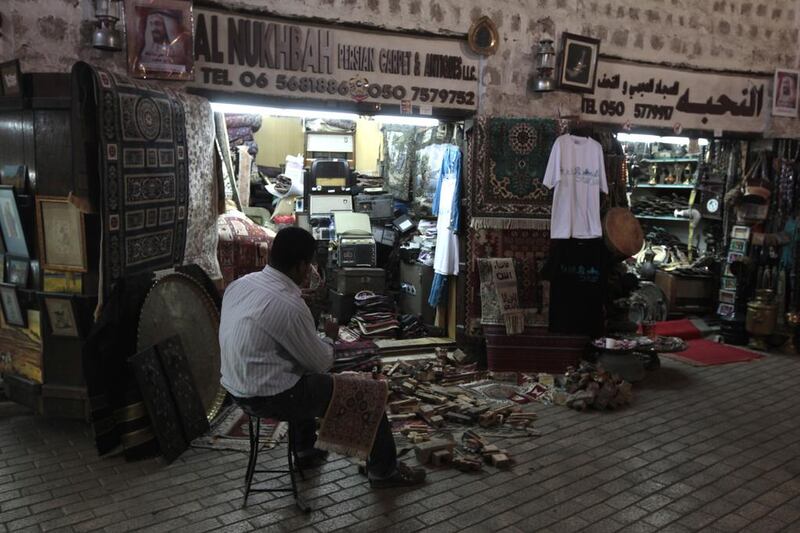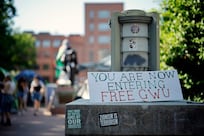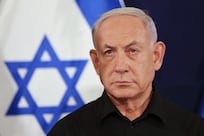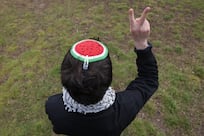Taryam Al Subaihi's column In the creep of progress, our culture gets lost, in which he lamented the demise of Emirati culture, speaks to the concerns of those who are worried about the toll of globalisation. Is it helping to bring the world together in the way suggested by the 1970s' Coke commercial? It had youngsters holding hands and declaring: "I'd like to teach the world to sing in perfect harmony." Today, the world may be singing together, but it is definitely off -key.
It is not only individual cultures that are affected. The globalisation project itself faces criticism because in many ways it means Americanisation. This phenomenon is most painfully apparent on YouTube. Search for UAE history or culture and you will understand what I mean. Whether it’s British documentaries or homework projects, the focus is on pretence rather than on the UAE’s past.
One of the most embarrassing videos on the UAE is a post by twin YouTube vloggers Brooklyn and Bailey. They show the usual stuff – fashion, make-up and scenes from their lives. Last month, they spent their spring break in Dubai. They came with their family to “meet and greet fans at Zabeel Park”. They expected about 200 to 250 fans, but were surprised to find 1,500 waiting in the searing heat for their turn to take a selfie with the American twins.
Brooklyn and Bailey told the cheering crowd that “Burj Al Arab is the Statue of Liberty of Dubai” and that “The driver of our dune-bashing vehicle is named Abu, like Abu the monkey in Disney’s Aladdin”. Going by the excitement among the fans, I understand what Al Subaihi meant when he said that he could discern a change in the UAE’s youth.
The Dubai vlog reminded me of The Giver, a film that has a small dystopian society suspended in time, its past not much different from the present. Only “The Giver” in the film knows what really happened in the past and he is searching for the right person to pass it on to before it’s too late.
Is this what is happening in the UAE? Al Subaihi called for diplomacy and finesse, but they don’t seem to be working. What Brooklyn and Bailey experienced was a reproduction of Indiana Jones, not Emirati culture. This was evident from the question from some of the viewers of the video: “Where is Dubai?”
If the American twins had met real Emiratis, they would have been able to taste madrooba, margooga and Vimto – all of which are Emirati favourites. They would have learnt a few Arabic words and understood when and why muezzins call for prayer. It’s unfortunate that they learnt nothing about the UAE. I hope that they at least now know that Abu is a term of respect, meaning father, and not just the name of a Disney character.
They also missed Sharjah’s Heritage Days, a magnificent cultural event held annually and with a lively, vivacious and entertaining atmosphere. They missed the opportunity to meet some important people who could have enlightened them on what this country was like decades ago.
William Appleman Williams, one of the 20th century’s most prominent revisionist historians of American diplomacy, once said: “History is one of the most misleading – and hence dangerous – approaches to knowledge if viewed, or practised, as a process of reaching back into the past for answers sufficient unto the present and the future.” He was right, but what’s more dangerous is embracing the wrong history, the wrong picture of a country’s past.
The real stories of this country can be told by my neighbour Jamal’s father, for instance, a merchant who came here in the 1940s from India. Then there are institutions such as Al Eslah school in Sharjah that was founded in the 1930s. It can debunk the myth that the UAE had no education before 1971. Al Eslah started as a primary school but later became a college of sorts, where students came from as far away as Somalia.
Whether from Yemen, Africa, India or China, citizens have many stories to tell. It’s from them that people can learn about the real UAE and tell the world.
Maryam Ismail is a sociologist and teacher who divides her time between the US and the UAE





